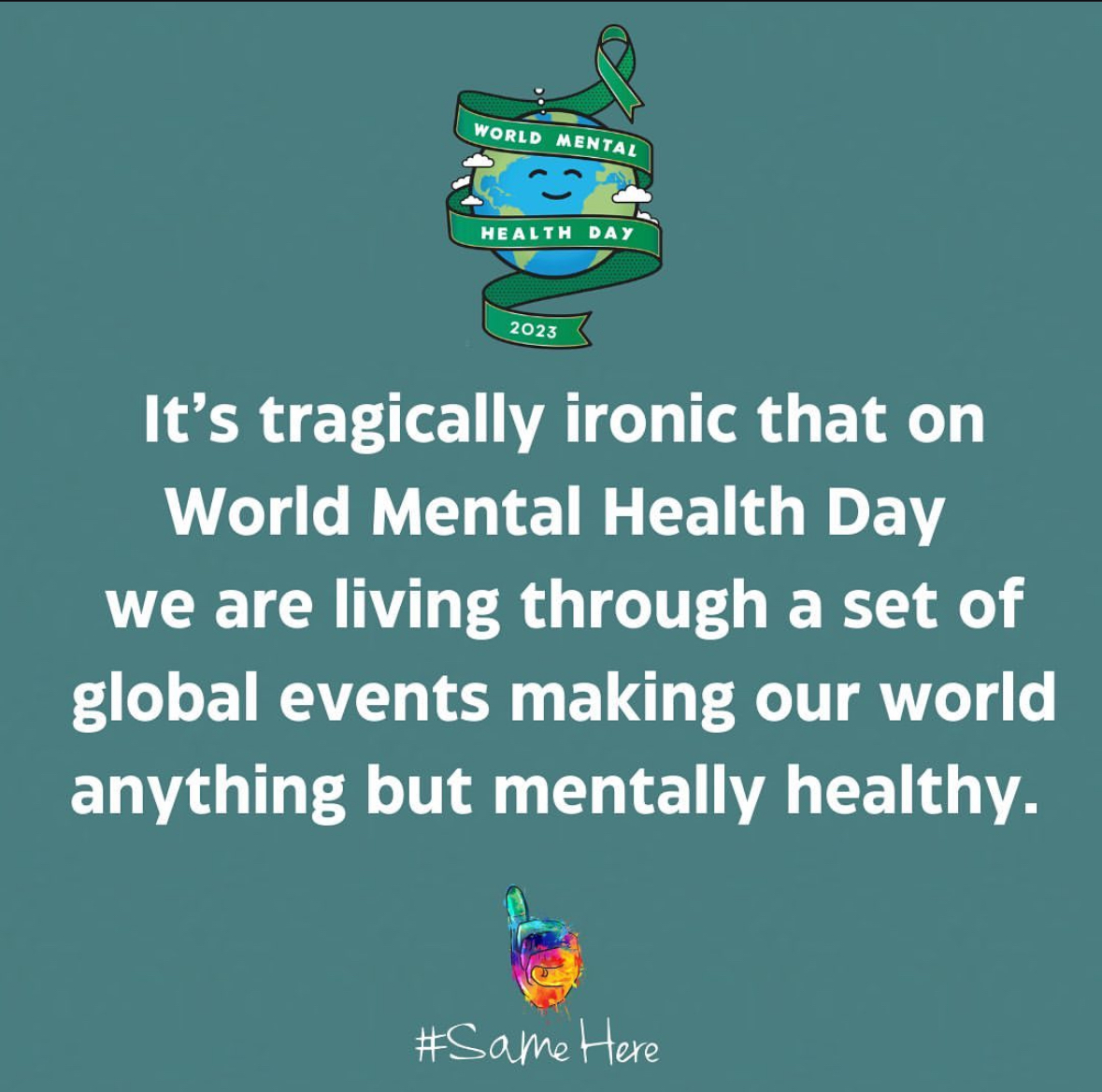Truth be told, I fell in love with psychiatry because the mind seemed so fascinating! When I first learnt about symptoms like hallucinations, it was simply fascinating to me that our powerful minds can make us see, hear, feel things that are not real!
It is likely that my lack of self-awareness in my younger years, obscured the reality that I needed this field of science as much as a fish needs water.
Being a psychiatrist helped me personally in many ways. After the birth of my first child, I experienced intrusive images of harming my baby which caused me a lot of anxiety. The prior knowledge that this heightened anxiety was an evolutionary mechanism to ensure survival of the newborn and prior knowledge of certain therapy techniques helped to curb this anxiety in the bud.
There is a period in my life that reinforced my desire to practice not just psychiatry but integrative and holistic psychiatry…
After my fellowship training in Geriatric Psychiatry, I began work as an inpatient psychiatrist (hospitalist) for a local psychiatric facility. I had my second child in the first year of my career with this company. My family was growing, I was settling down in my career, life was becoming predictable and “normal.”
Except I became interested in nutrition and mental health. This interest was likely fueled by my desire to provide the best nutrition and nourishment to my babies. (Especially during my second pregnancy and working full time in the hospital, I realized I did not want to eat in the cafeteria. Because, the food was not organic, and it was mainly processed and re-purposed food. When I paid attention to the food that was served to the patients in the hospital, I realized again, it was highly processed meals put together in the kitchens. It was not “made from scratch” meals.). This interest made me research about nutritional psychiatry. One of the first landmark studies was the Vienna study that looked at the effect of Omega 3 fish oil supplementation in patients at high risk for psychosis. This study found that Omega 3 supplementation for just 3 months significantly reduced the risk of conversion to psychosis at the end of 12 months and this benefit held true even after 5 years.
I began to recommend fish oil to all my patients with psychosis. This prompted one of my colleagues to complain to the Medical Director of my hospital that I was getting a kickback from supplement companies. I was not. I was asked about it by my superiors and when I denied it, the matter was let go.
My interest in nutritional psychiatry took me to the field of integrative psychiatry and organizations like ABIHM (American Board of Integrative and Holistic Medicine), IFM (Institute for Functional Medicine) etc. I was blown away by the information presented to me when I attended their conferences. For the first time as a psychiatrist, I was exhilarated to learn that we can reverse many mental health issues by healing the body first. I learnt of the role of inflammation, the microbiome, methylation genes, gut-brain connection, and so much more. I decided to get formal education in these fields. So, I pursued and received my diploma in integrative and holistic medicine in 2014, pursued education in Ayurveda. But it is only after I began to attend IFM conferences in 2015, that I was able to organize all this information and I finally found an operationalized manner to implement these new ways of thinking, evaluating and treating patients under my care.
Each time, I would come back from the conferences with renewed enthusiasm and vision of changing how psychiatry was practiced especially in the hospital settings. I was learning new information about the dangers of long-term use of many psychiatric medications, that we were over-prescribing them especially to vulnerable populations like children. All this new information was finding its way into my practice.
This is when I was put under the microscope. Things were changing rapidly at the hospital. There was change in leadership at many levels. The new leaders (including the new medical director) were keen on profits, even at the expense of quality. All of a sudden, we (as attending physicians) could not say “no” to more and more extra work. When I started working at this hospital, I was told that a patient load of 8 per day is full time work. This included 3 new patient assessments. By 2015, there was no upper limit. If there was a bed available, then we had to take more and more patients onto our case load even though we felt overwhelmed, burnt out and protested that we were putting patients at risk. My colleagues in the adult inpatient unit, we all felt overwhelmed, burnt out and resentful.
Especially, when we were on call for the weekend (only physician was on call from Friday 4 pm to Monday 8 am), the stress, burnout, resentment, was just building up. To practice integrative psychiatry which involves more thorough evaluation and counseling of diet/lifestyle intervention was more labor intensive on my part. On the one hand, I could not unlearn this new information and go back to simply evaluating patients based on the atheoretical DSM IV model and prescribe a slew of psychopharm meds. On the other hand, providing the in-depth evaluations and treatments was causing my work-life balance to suffer, and causing me a great deal of stress.
I became vocal about both these issues. Advocating for my needs and rights as a physician, and also advocating for my patients and their needs/rights. I was also (probably a bit overzealous) zealous about implementing integrative psychiatry principles and would talk to my colleagues, my superiors, the admin about this new approach to mental health. I learnt the hard way that my vocal protest was not welcome. I was looking to reform the system, but it backfired.
All in all, I became persona-non-grata. I remember that I felt confident to practice Functional Medicine specifically in fall 2015. By March 2016, I felt so persecuted by my superiors and the admin; I was experiencing stress at very high levels. It felt like all my actions were scrutinized. I was forced to explain myself over and over again. I was constantly on the “witness stand.” Looking back, I could have been diagnosed with acute stress disorder or adjustment disorder with anxiety. I was miserable at home and at work. I was highly irritable. My family took the brunt of it, sadly. My work suffered. I was not able to complete my notes on time, for which I was dinged again. It was a vicious cycle!
I also recognize now that this time period of persecution caused me post traumatic stress for at least 2 years after I quit my job. In addition to feelings of stress and burn out, I was also having severe acid reflux. I recall that one night, I thought I was having a heart attack. Barely 40 and having a heart attack!
The last straw was a false accusation that I discharged a patient without prescription medication and the community psychiatrist she was discharged to was irate about this and had complained to the hospital medical board about my “negligence.”
From my perspective, I know I did excellent work. I had suspected the client to have had methylation gene polymorphisms and consequent nutritional deficiencies contributing to her mental health issues. Blood tests confirmed my suspicions and therefore, addressing the methylation polymorphism and nutritional deficiency was the key to her recovery (not medication, which would have just contributed to side effects).
Unbeknownst to the hospital’s medical board, the community psychiatrist is a particularly good friend of mine. I reached out to him directly to clarify the work I had done. Imagine my surprise when this friend of mine had no idea about what I was talking about. He had not yet seen the patient in question in outpatient setting. He certainly had not complained about me. He heard my story and quietly pointed out it was time for me to leave this hospital. He planted the seed in my mind that if I was so passionate about my work, I should start my own practice.
So, the very next day, I handed my resignation and finally started my Integrative psychiatry clinic in September 2016. At first, it was a lot of theory but little practical experience. I am ever so grateful to the original handful of patients who came to me, trusted me and my care. Gradually, I was able to implement theory into practice and began to see amazing stories of recovery and healing in my patients. Now, 5 years and over 700 patients later, we have a successful model of mental wellness. Which can be replicated in a wide variety of patients.




